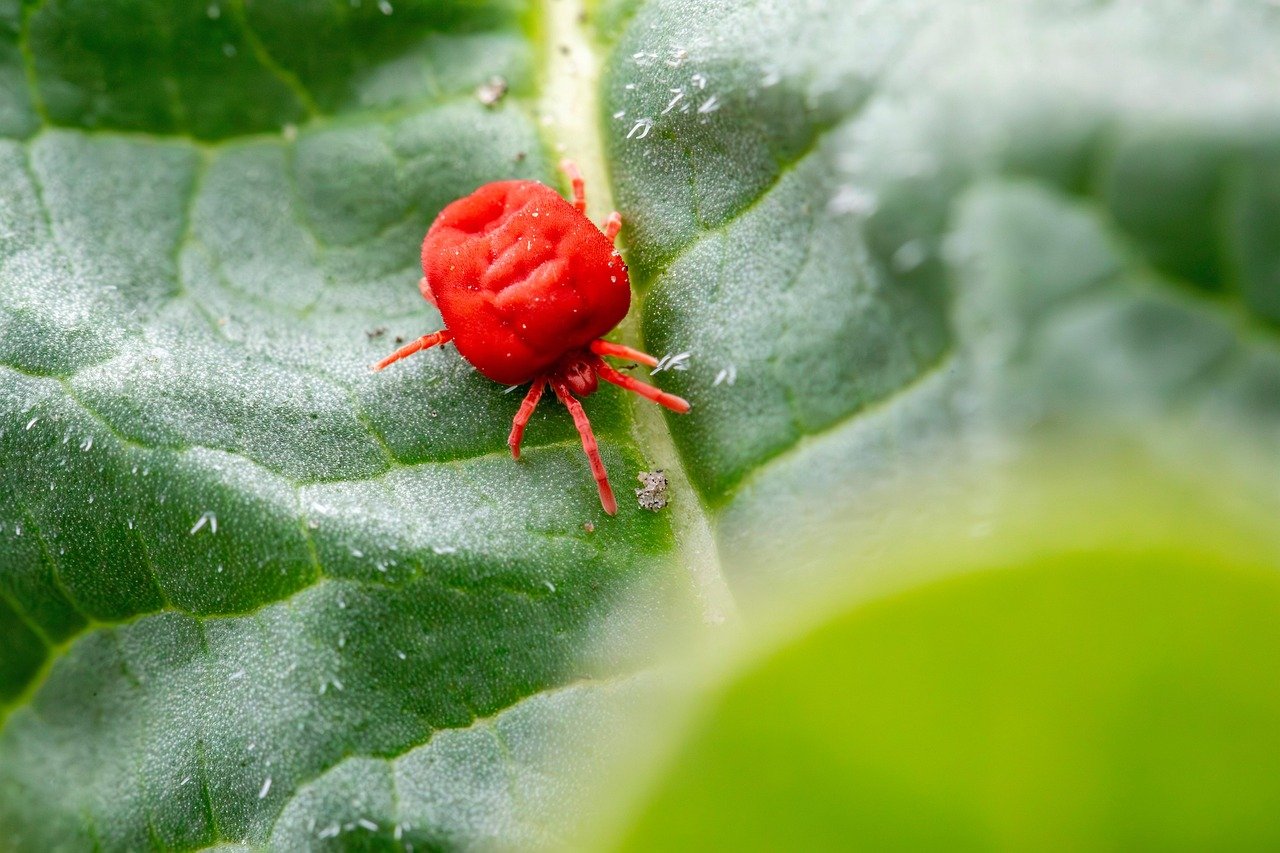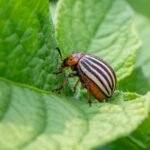
🌿 Chemical vs. Organic Crop Protection: What’s the Best Option for Your Garden?
When it comes to safeguarding your plants from pests, diseases, and environmental stress, you have two primary options: chemical crop protection and organic crop protection. Both methods have their merits, but choosing the best option for your garden depends on a variety of factors, including your goals, your garden’s size, and your approach to sustainability.
This article will provide a balanced comparison of both methods, covering their pros, cons, and suitability for different gardening needs.
1. 💡 What is Crop Protection?
Crop protection refers to a combination of practices and strategies designed to minimize the impact of pests, diseases, and environmental stressors on plants. The goal is to ensure healthy growth, improve yields, and reduce the need for chemical interventions. The core components of crop protection are prevention, monitoring, and intervention.
- Prevention: The proactive approach of preventing potential threats from affecting your crops.
- Monitoring: Regular observation and assessment of your crops to identify problems early.
- Intervention: Taking corrective measures when pests, diseases, or environmental stresses are detected.
2. ⚡ Chemical Crop Protection: A Traditional Approach
Chemical crop protection involves the use of synthetic pesticides, herbicides, and fungicides to control pests, weeds, and diseases. These products are designed to target specific pests or pathogens, often offering fast and effective results.
👍 Pros of Chemical Crop Protection
- Fast-Acting: Chemical pesticides and fungicides typically show rapid results, killing pests or pathogens within hours or days.
- High Efficacy: Many chemical products are highly effective at controlling a wide range of pests and diseases, even in severe infestations.
- Broad Spectrum: Chemical solutions often target multiple pests, which is beneficial for large-scale agriculture or when dealing with diverse pest populations.
- Long-Term Effect: Some chemicals provide long-lasting protection, reducing the frequency of application.
👎 Cons of Chemical Crop Protection
- Non-Selective: Chemical pesticides can harm beneficial insects like bees, ladybugs, and earthworms, disrupting the natural balance in your garden.
- Environmental Impact: Overuse of chemical pesticides can lead to soil and water contamination, negatively affecting surrounding ecosystems.
- Health Risks: Some chemicals, if used improperly, can pose risks to human health, particularly if residue remains on edible crops. Long-term exposure can also have chronic effects.
- Pesticide Resistance: Over time, pests can develop resistance to chemical pesticides, making them less effective and leading to a cycle of increased pesticide use.
- Harm to Pollinators: Chemical pesticides can have a devastating impact on pollinators like bees, which are vital for pollination and healthy plant reproduction.
3. 🌱 Organic Crop Protection: Eco-Friendly Alternatives
Organic crop protection methods rely on natural substances, biological control agents, and cultural practices to prevent or manage pests and diseases. These methods avoid synthetic chemicals and are often considered safer for the environment and human health.
👍 Pros of Organic Crop Protection
- Safer for Beneficial Insects: Organic methods are generally safer for pollinators and other beneficial insects that help with pest control and plant health.
- Environmentally Friendly: Organic solutions have minimal impact on the environment and can promote a more sustainable garden by supporting biodiversity and soil health.
- Healthier for Humans: Organic pesticides are typically derived from natural sources, meaning they’re less likely to leave harmful residues on crops, making them safer for human consumption.
- Soil Health: Organic methods often focus on improving soil health and using sustainable practices, such as crop rotation and companion planting, which can help prevent long-term pest problems.
- Less Risk of Resistance: Since organic methods often rely on physical barriers, predators, and natural substances, pests are less likely to develop resistance.
👎 Cons of Organic Crop Protection
- Slower Action: Organic solutions tend to work more slowly than chemicals, and they may not provide the same immediate or broad-spectrum results.
- Less Effective in Severe Infestations: In cases of heavy pest or disease pressure, organic methods may struggle to control the problem effectively without regular intervention or supplemental treatments.
- Frequent Reapplication: Organic pesticides, like neem oil or insecticidal soap, often require more frequent reapplication compared to chemicals, especially after rain or watering.
- Labor-Intensive: Organic gardening often requires more manual effort, such as hand-picking pests, using traps, or applying natural remedies regularly.
- Limited Product Availability: Organic solutions may not be as readily available or as diverse as their chemical counterparts, particularly in large-scale agriculture.
4. ⚖️ Key Differences Between Chemical and Organic Crop Protection
| Aspect | Chemical Crop Protection | Organic Crop Protection |
|---|---|---|
| Effectiveness | Fast, broad-spectrum, and highly effective. | Slower, often requires multiple applications. |
| Impact on Beneficial Insects | Can harm pollinators and beneficial insects. | Generally safer for pollinators and beneficial insects. |
| Environmental Impact | Can lead to pollution, soil degradation, and water contamination. | More sustainable, minimal impact on ecosystems. |
| Health Risks | Potential health risks, especially if misused. | Safer for human health with less chemical residue. |
| Cost | Often more affordable, especially for large-scale use. | Can be more expensive, especially for small-scale gardening. |
| Pesticide Resistance | Can lead to resistance over time. | Less likelihood of resistance developing. |
| Long-Term Effects | Can disrupt ecosystem balance and soil health. | Promotes soil health and biodiversity. |
5. 🌻 Which Method is Best for Your Garden?
The best crop protection method depends on your specific needs, gardening style, and goals.
When to Choose Chemical Crop Protection
- Severe Pest Infestation: If you have a large garden or farm and are dealing with a serious pest infestation that threatens your crops, chemical pesticides may offer immediate relief.
- Time-Sensitive Needs: If you need fast results and have a large area to cover, chemical pesticides may be the more efficient choice.
- Commercial Agriculture: For large-scale farming operations, chemical crop protection can be more cost-effective and easier to apply.
When to Choose Organic Crop Protection
- Home Gardens: If you’re gardening for personal use and prefer to avoid chemicals, organic methods are an excellent choice. They are safer for your health and the environment, especially when growing edible crops.
- Sustainability Goals: If you aim to grow your garden in a more sustainable, eco-friendly way, organic crop protection supports biodiversity and soil health.
- Small-Scale Gardens: Organic methods are often more suited to smaller gardens, where pests can be managed through manual or natural controls.
- Pollinator Protection: If your garden is home to pollinators or you’re trying to encourage biodiversity, organic crop protection is the safer choice for preserving these essential species.
6. 🌍 Conclusion: Making the Right Choice
Both chemical and organic crop protection methods have their place in gardening, and the choice largely depends on your specific needs. If you prioritize speed, efficiency, and cost-effectiveness in large-scale gardening, chemical solutions may work best. However, if you’re committed to creating a sustainable, eco-friendly, and health-conscious environment, organic crop protection offers a safer and more natural alternative.
Regardless of the method you choose, remember that prevention through healthy soil practices, good garden hygiene, and careful monitoring will always be the most effective and sustainable way to protect your crops. The ultimate goal is to find a balance that aligns with your gardening philosophy and ensures the long-term health of your plants and the environment. 🌱 Happy gardening!


